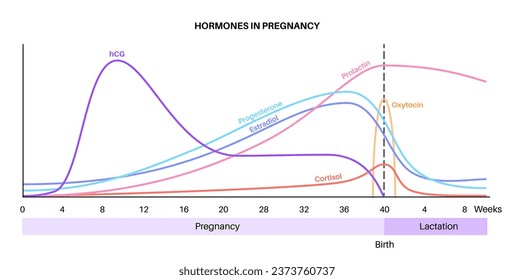Getting Pregnant in Your 40s: What You Need to Know

Whether you’ve delayed pregnancy to focus on your career, waited to find the right partner, or have been trying for a while, getting pregnant in your 40s can feel daunting. But the good news is, it’s not too late! Many women in their 40s successfully conceive and have healthy pregnancies. Here, we’ll explore your chances of conceiving naturally and with fertility treatments, the pros and cons of having a baby later in life, and how to prepare for a healthy pregnancy.
Chances of Natural Conception in Your 40s
Your fertility declines with age, making conception more challenging as you get older. At 40, you have just over a 20% chance of conceiving per cycle, which drops to about 10% by your mid-40s. Comparatively, women in their 30s have around a 35% chance, and women in their 20s about 45%. By the time you reach 45, the likelihood of natural conception is less than 5%.
The decline in fertility isn’t only due to the reduced number of eggs but also their quality. Eggs released in your 40s are more likely to have chromosomal abnormalities, increasing the risk of miscarriage and birth defects.
Fertility Treatments: What Are Your Options?
Modern fertility treatments offer hope for older women trying to conceive. Procedures like intrauterine insemination (IUI) and in vitro fertilization (IVF) have seen continuous improvements. In your early 40s, the success rate for a live birth per IVF cycle is around 1 in 7. However, by age 43, this drops to about 1 in 10 or lower, and the success rate diminishes further as you age.
Also read: Can You Have A Vaginal Birth With Gestational Diabetes?
Using donor eggs or embryos can significantly increase your chances of having a baby. The risks of miscarriage and chromosomal abnormalities are consistent with the donor’s age, typically a younger woman in her 20s or 30s.
If you’re between 40 and 42, you might qualify for NHS-funded IVF treatment in the UK, though availability varies by location. Private treatment is also an option but can be costly.
Pros and Cons of Having a Baby in Your 40s
Pros:
- Emotional and Financial Stability: You’re likely more emotionally and financially prepared for the challenges of parenthood.
- Life Experience: Having had time to establish a career and life experiences, you may feel more confident in your parenting decisions.
- Healthier Lifestyle: Older parents often have healthier lifestyles, which can positively influence their children’s upbringing.
- Breastfeeding: You’re more likely to breastfeed, benefiting both your health and your baby’s.
Cons:
- Increased Health Risks: Older mothers are at a higher risk for chronic conditions like diabetes and high blood pressure, which can affect pregnancy and childbirth.
- Higher Miscarriage Rates: The miscarriage rate increases with age, with a risk of about 1 in 2 for women over 45.
- Pregnancy Complications: Conditions like gestational diabetes and pre-eclampsia are more common, and there’s a higher chance of requiring extra care during pregnancy.
Preparing for Pregnancy
Regardless of age, there are steps you can take to prepare for a healthy pregnancy:
- Lifestyle Changes: Stop smoking, limit alcohol intake, and maintain a healthy weight.
- Folic Acid: Begin taking a daily supplement containing 400 micrograms of folic acid to reduce the risk of neural tube defects.
- Preconception Care: Consult your GP for a check-up and advice on preparing for pregnancy, including getting up-to-date on vaccinations and managing any health conditions.
What to Do If You Suspect a Fertility Problem
Certain medical conditions can affect fertility, including irregular periods, fibroids, endometriosis, polycystic ovary syndrome (PCOS), and sexually transmitted infections. If you or your partner have known fertility issues, consult your GP for a referral to a specialist. Early intervention can improve your chances of conceiving.
Conclusion
While getting pregnant in your 40s comes with challenges, it’s entirely possible to have a healthy pregnancy and baby. With the right preparation, medical support, and lifestyle adjustments, you can maximize your chances of success. Always consult with healthcare professionals to ensure you’re taking the best steps for your unique situation.






